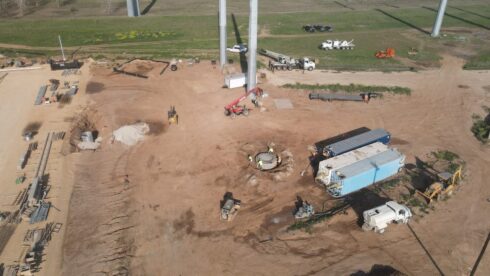Texas is witnessing an unsettling rise in the number of newborns abandoned across the state, triggering alarm among communities and policymakers alike. In 2024 alone, at least 18 infants have been left in precarious conditions, with the latest found outside a Whataburger fast food chain in San Antonio just before Christmas, according to the Texas Department of Family and Protective Services. This starkly contrasts with statistics from a decade ago when only seven cases were recorded annually.
The growing trend has been linked to Texas’ restrictive abortion laws, which offer no exceptions for victims of rape or incest. The state also ranks near the bottom in women’s health and reproductive care, according to the Commonwealth Fund. These systemic issues are further compounded by Texas having one of the nation’s highest birth rates, creating a perfect storm that disproportionately affects vulnerable populations.
The Role of Legislation and Safe Haven Laws
Twenty-five years ago, Texas became the first state to implement a safe haven law, known as the Baby Moses law. This legislation allows parents to safely relinquish newborns at designated locations, including hospitals and fire stations, without fear of prosecution. Despite the law’s intent to prevent child abandonment, lack of awareness and inadequate funding hinder its effectiveness.
Efforts by organizations like the National Safe Haven Alliance aim to bridge this gap. Leah Kipley, the assistant director, has called for a statewide awareness campaign, emphasizing that vulnerable groups, including undocumented immigrants, remain uninformed about their options. While other states have introduced innovative measures, such as Safe Haven Baby Boxes and educational programs, Texas has only two baby boxes installed statewide, highlighting the pressing need for expansion and public education.
Barriers to Women’s Healthcare Intensify Crisis
Texas leads the nation in the percentage of women without healthcare, a crisis exacerbated by continuous cuts to women’s health programs. Governor Greg Abbott’s recent directive for public hospitals to track the cost of treating undocumented immigrants has further discouraged women from seeking prenatal care. Legal experts, including Blake Rocap of the Sissy Farenthold Reproductive Justice Defense Project, argue that these policies worsen access to essential healthcare, particularly for uninsured and immigrant populations.
The near-total abortion ban and limited access to prenatal care create dire conditions for expecting mothers. Advocates stress the importance of addressing these systemic barriers. “If communities don’t know their options, how can they make informed choices to protect their children and themselves?” Kipley remarked.
Safe Haven Laws and Awareness Efforts
Texas pioneered safe haven legislation 25 years ago with the Baby Moses law, allowing parents to surrender newborns at designated locations without legal consequences. These safe havens include hospitals, fire stations, and emergency medical facilities. Despite this progressive legislation, awareness of these options remains critically low among vulnerable populations.
Leah Kipley, assistant director of the National Safe Haven Alliance, has engaged with Texas legislators to advocate for increased awareness campaigns. Her efforts highlight a crucial gap between existing protective measures and public knowledge of these resources, particularly among undocumented communities who may fear interaction with authorities.
Funding Allocation and Future Solutions
Despite possessing a substantial $32.7 billion budget surplus, Texas has not directed funds specifically toward safe haven awareness programs. Instead, the state has allocated $165 million to alternative programs, including crisis pregnancy centers, which have faced criticism for potentially misleading practices.
Other states have taken more proactive approaches. Virginia has committed $50,000 annually for safe haven awareness through billboards and public service announcements, while Illinois has integrated safe haven education into its public school curriculum. Texas has made some progress by allowing the installation of Safe Haven Baby Boxes, though at $20,000 per unit, only two such facilities currently exist in the state. These climate-controlled drawers, equipped with silent alarms, provide a secure option for surrendering infants up to 60 days old.














